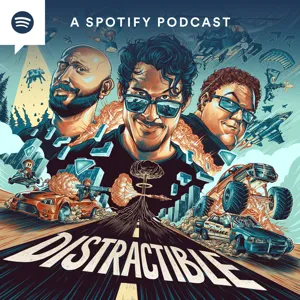Podcast Summary
Mint Mobile's Price Drop and PlushCare's Weight Loss Program: Mint Mobile differentiates itself with lower prices, offering new customers Mint Unlimited for $15/month with a $45 upfront payment. PlushCare provides online healthcare services, including weight loss programs with FDA-approved medications.
Mint Mobile, a mobile service provider, is differentiating itself from competitors by lowering its prices instead of raising them. Ryan Reynolds, the company's spokesperson, announced a significant price drop for Mint Unlimited from $30 to $15 a month. This offer is exclusive for new customers and comes with a $45 upfront payment for three months, plus taxes and fees. PlushCare, an online healthcare service, was also highlighted in the podcast for its weight loss program. They offer access to board-certified physicians who can prescribe FDA-approved weight loss medications for eligible individuals. The podcast, "More or Less," featured an interview with Milo Beckman, a young mathematician who wrote a book called "Math Without Numbers." Milo aims to change people's perception of math by focusing on concepts rather than numbers. He started high school math at a young age, graduated from Harvard, and now teaches and writes. The podcast challenged the listeners not to mention any numbers throughout the episode.
Math goes beyond numbers and equations: Math is a creative and fun way to explore abstract ideas like symmetry, infinity, and dimensions. Start with topology to understand these concepts through visualization and manipulation.
Math is not just about numbers and equations, but rather a beautiful way of thinking about concepts such as symmetry, infinity, and dimensions. Math goes beyond numbers and involves working with structures and ideas in a creative and fun way. This idea was emphasized by the speaker, who shared her experience of encountering a math class filled with symbols and diagrams, with no numerals in sight. This experience showed her that math is not just about long division, but rather a world of exploration and discovery. The speaker also mentioned the importance of making this world accessible to those who may not have had the opportunity to delve into advanced math curriculums. She suggested starting with the study of topology, which can be thought of as the study of doughnuts or toruses. The speaker used the analogy of manipulating a necklace to illustrate topological concepts, emphasizing the importance of visualizing and understanding these abstract ideas. In summary, math is a rich and creative field that goes beyond numbers and equations, and it is important to make this understanding accessible to all. The study of topology, with its doughnut-like shapes, is a great place to start exploring the beauty and depth of mathematical concepts.
Using constraints to fuel creativity: Constraints can lead to innovative solutions and new ways of expressing ideas. In topology, considering shapes that can be stretched and squeezed into each other as the same led to creative audio-only communication.
The use of constraints in creativity can lead to innovative solutions and new ways of expressing ideas. The speaker in this discussion, who wrote a visual book on topology using only audio, emphasized the importance of breaking down complex concepts into broad categories. In topology, this means considering shapes that can be stretched and squeezed into each other as the same. This constraint led the speaker to think creatively about how to convey these abstract ideas through audio alone. The speaker also mentioned that they find creativity in other constrained forms, such as writing crossword puzzles. By setting limits, we can challenge ourselves to find unique approaches to communicate complex ideas.
Explaining complex concepts without numbers: Creatively explaining complex concepts can lead to new insights and perspectives. Oversimplifications, like economic models, can be valuable tools for understanding complex systems.
Creativity and explanation can thrive even within the most constrained frameworks. The speaker shares an example of writing a math book without using numbers, which forced her to think about explaining complex concepts in a simplified way. This experience led her to reconsider various topics from new perspectives. Moreover, she appreciated the speaker's nuanced approach to economic models, recognizing that while they may be simplifications, they are still valuable tools for understanding complex systems. The analogy of musical notation as a simplified model of music resonated with her, as it highlights how useful oversimplifications can be in conveying complex information. Ultimately, this conversation underscored the importance of finding creative ways to explain and understand complex concepts, and the value of recognizing the limitations and benefits of models in various fields.
Discussing statistics without numbers: Effectively communicate statistical concepts to a broader audience using intuitive language while maintaining accuracy.
While numbers play a crucial role in statistics, there's value in communicating statistical concepts without relying solely on numbers. During a discussion on a radio program, the idea of doing statistics or reporting statistics without numbers was raised. While some aspects of statistics reporting can be conveyed through more word-based framings, the actual work of statistics requires numbers for accuracy. The author of the book being discussed emphasized that the fundamental concepts of mathematics that make it interesting don't necessarily involve numbers. However, the need for numbers arises when delving into the intricacies of mathematical calculations. In journalism, particularly when reporting probabilities, using more intuitive language can help avoid confusion and better connect with audiences. Ultimately, the goal is to effectively communicate statistical concepts to a broader audience while maintaining accuracy.
Communicating statistics intuitively: Milo Beckman emphasizes the importance of communicating stats intuitively. Shopify's checkout converts 36% better on average, and UnitedHealthcare's Health ProtectorGuard plans help manage medical bills with fewer restrictions
While statistics require numbers for accuracy, it's essential to communicate them in an intuitive and relatable way to broader audiences. Milo Beckman, the author of "Math Without Numbers," emphasizes this point. On a different note, Shopify is a global commerce platform that helps businesses grow, from their initial online shop launch to their first physical store and beyond. With Shopify, businesses can convert browsers into buyers using the Internet's best converting checkout, which is 36% better on average compared to other leading commerce platforms. Lastly, when it comes to healthcare, it's beneficial to be "extra" prepared. UnitedHealthcare's Health ProtectorGuard fixed indemnity insurance plans supplement primary plans, helping individuals manage out-of-pocket costs without usual requirements and restrictions like deductibles and enrollment periods. These plans make managing medical bills a little easier and less stressful.






